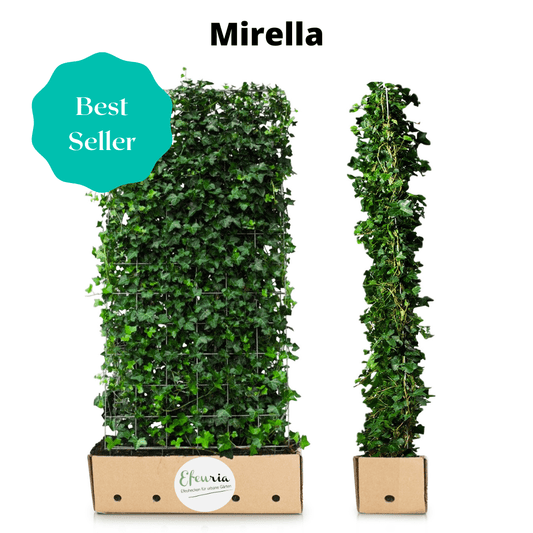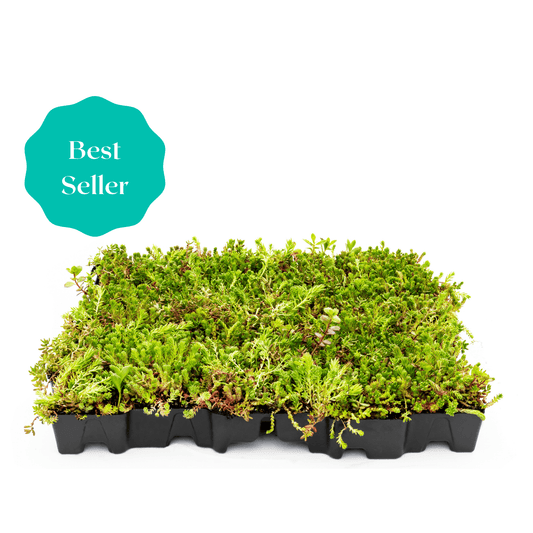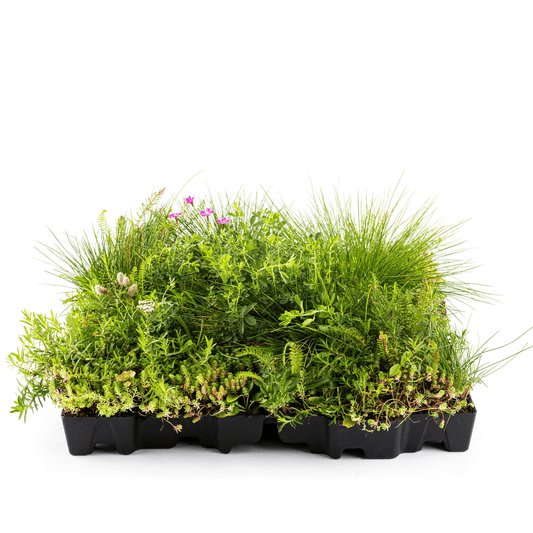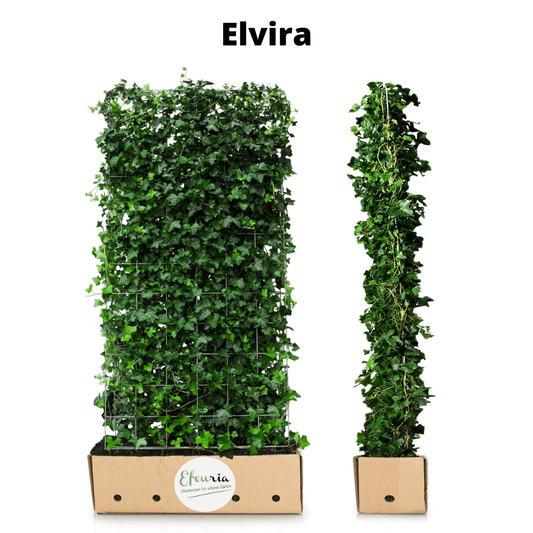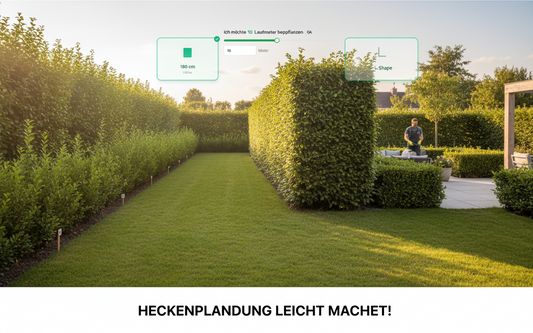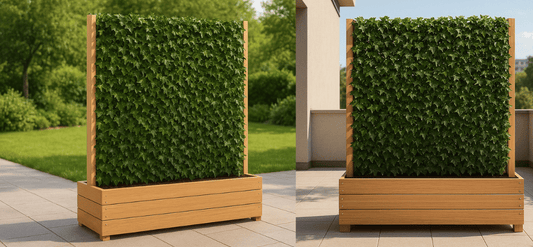Ivy hedge in the garden: a good idea?
Ivy hedges are a popular choice for urban gardeners because they are considered low-maintenance, hardy, and evergreen. They provide good privacy while remaining slender.
Learn more about the advantages and disadvantages of ivy hedges here. Before planting an ivy hedge, you should carefully consider the pros and cons in relation to your individual needs.

Advantages of an ivy hedge
Here we weigh the advantages of ivy hedges as garden hedges. Learn more.
- Low maintenance : Ivy requires little maintenance. Annual pruning, preferably in spring and fall, keeps the hedge in shape. This results in less clippings than with a traditional garden hedge, so garden waste can be easily disposed of in the organic waste bin.
- Hardy : Ivy defies winter conditions and survives even subzero temperatures unscathed. Ivy hedges can be planted until November, so you can enjoy a green privacy screen right from spring.
- Evergreen : Ivy stays green year-round, making it an attractive hedge choice even during the colder months. In spring, ivy takes on its classic dark green color. In winter, the leaves take on a reddish hue. This protects the plant from frost.
- Privacy screen : Ivy provides good protection from prying eyes, wind, and noise. The hedge remains opaque even in winter.
- Privacy : Ivy can create a private atmosphere in the garden, as it can be planted at different heights. You can find various heights in our shop, for example.
- Energy saving : Ivy acts as a natural shade provider in summer and retains valuable heat in winter.
- Noise protection : Ivy can absorb disturbing noises from the street or neighboring properties. Especially in the case of a dispute with a neighbor, an ivy hedge's density can bring calm to the commotion.
- Air quality : Ivy acts as an air filter and contributes to improving air quality.
- Bee-friendly : Ivy is a popular bee pasture and can help support bee diversity.
Learn more about the benefits of ivy hedges in our other blog post.
Disadvantages of an ivy hedge
Here we weigh the disadvantages of ivy hedges as garden hedges. Learn more.
- Can damage walls : Ivy can damage walls and facades if it clings to them. Therefore, regular maintenance and inspection of the hedge is important.
- May be poisonous : Ivy berries are poisonous and should not be consumed by children or pets.
- Can become untidy : Without regular trimming, ivy can take on an unkempt appearance.
- Can become invasive : Ivy can spread rapidly and crowd out other plants. Therefore, regular hedge maintenance is important.
Read more about the disadvantages and how to avoid them in our article " These are the disadvantages of ivy and ivy hedges ".

Here are some tips for planting and caring for an ivy hedge:
- Location selection: Choose a sunny to partially shaded location, as this provides optimal growing conditions for your ivy plants. However, ivy is so hardy that it can also cope well with sunny locations.
- Spacing between plants: Plant ivy plants 30-40 cm apart. This gives them enough space to develop healthily and form a dense hedge. Tip : If you opt for a ready-made ivy hedge, use our Efeuria hedge calculator : calculate how many hedge elements and accessories you need in 3 steps!
- Regular watering: Adequate watering is essential, especially during the first few weeks after planting. Ensure the young ivy plants receive enough moisture to successfully root.
- Fertilization: Support the growth of your ivy hedge by applying an organic fertilizer once a year. This provides the nutrients needed for healthy development.
- Pruning Practices: Prune two or three times a year to maintain the desired hedge shape. A good trim not only promotes growth but also increases the hedge's density. Find more pruning tips here . Ivy can be trimmed well with electric shears.
- Healthy maintenance: Monitor your ivy hedge regularly for dead or diseased shoots. Remove these to maintain the hedge's health. At the same time, check the hedge for pests and diseases and take appropriate measures if necessary.
- Privacy function: If you want to use an ivy hedge as a privacy screen, we recommend choosing a minimum height of 1.80 m. This height provides the desired privacy from prying eyes.
You can find further valuable tips and tricks on the subject of ivy hedges and their care in other articles here .
If you still have any questions, please feel free to write to us . We're happy to answer any questions you may have!

